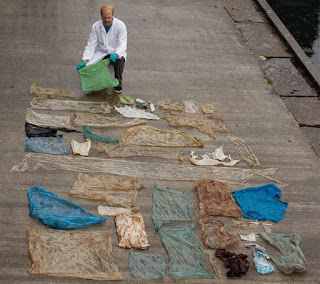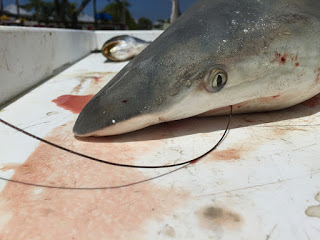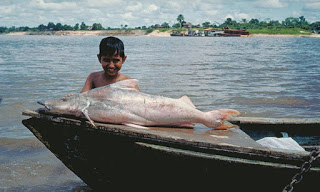1. David Banks, Former Bush Climate Aid Expected to Join NSC
 Former George W. Bush administration climate aide, George David Banks, is expected to join the National Security Council as an adviser on international energy and environmental issues. Banks worked at the State Department, where he focused on climate and energy issues at the U.S. Mission to the European Union in Brussels. He then served as a senior adviser on international affairs and climate change at Bush’s White House Council on Environmental Quality. He later became the Republican deputy staff director on the Senate Environment and Public Works Committee and is now an executive vice president at the American Council for Capital Formation, a pro-business nonprofit group. Read More…
Former George W. Bush administration climate aide, George David Banks, is expected to join the National Security Council as an adviser on international energy and environmental issues. Banks worked at the State Department, where he focused on climate and energy issues at the U.S. Mission to the European Union in Brussels. He then served as a senior adviser on international affairs and climate change at Bush’s White House Council on Environmental Quality. He later became the Republican deputy staff director on the Senate Environment and Public Works Committee and is now an executive vice president at the American Council for Capital Formation, a pro-business nonprofit group. Read More…
———————————————–
3. EPA Staffers Forced to Cancel Plans to Attend Alaska Environmental Summit
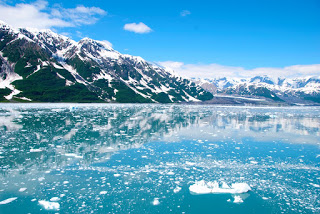 Out of the 34 EPA staffers that were scheduled to attend and present at the Alaska Forum on the Environment, only about half were allowed to attend in an effort to save American taxpayers money. “We’ve never had this happen before,” said Kurt Eilo, forum organizer, who found out just three days before the event that EPA staffers were not going to be able to make it as originally planned. Even though saving money was the given reason no other governmental agency was asked to cut the number of attendees making the journey to Alaska to discuss climate change related issues. Read More…
Out of the 34 EPA staffers that were scheduled to attend and present at the Alaska Forum on the Environment, only about half were allowed to attend in an effort to save American taxpayers money. “We’ve never had this happen before,” said Kurt Eilo, forum organizer, who found out just three days before the event that EPA staffers were not going to be able to make it as originally planned. Even though saving money was the given reason no other governmental agency was asked to cut the number of attendees making the journey to Alaska to discuss climate change related issues. Read More…
———————————————–
4. Humpback Whale Breach for a Reason
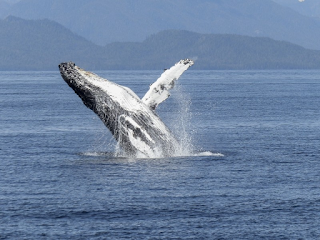
Scientists from the University of Queensland, Australia have figured out that humpback whales breach, jump high out of the water with their entire bodies, for long-distance communication with other humpbacks. The scientists observed that groups of humpbacks over 2.5 miles apart would breach to communicate, and at closer distances simply slap their flippers or flukes. Read More…
———————————————–
5. Bigger is Better for Marine Protected Areas
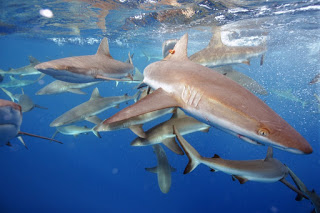 While tracking Grey Reef Sharks, at the U.S. Palmyra Atoll National Wildlife Refuge which is located 1,000 miles south of Hawaii in the Pacific Ocean, researchers from Stanford University have concluded that larger Marine Protected Areas (MPA) where better when it comes to protecting marine animals that roam outside of smaller set boundaries. Reef sharks are important predators that help support healthy coral reef ecosystems, as well as generate hundreds of millions in ecotourism dollars, “so it is crucial that we figure out if current conservation strategies are effective.” Read More…
While tracking Grey Reef Sharks, at the U.S. Palmyra Atoll National Wildlife Refuge which is located 1,000 miles south of Hawaii in the Pacific Ocean, researchers from Stanford University have concluded that larger Marine Protected Areas (MPA) where better when it comes to protecting marine animals that roam outside of smaller set boundaries. Reef sharks are important predators that help support healthy coral reef ecosystems, as well as generate hundreds of millions in ecotourism dollars, “so it is crucial that we figure out if current conservation strategies are effective.” Read More…
———————————————–
In the latest issue of Current Biology Researchers are finding that some sharks are being fished sustainably even though many shark activists argue for a total ban on shark fishing. “Strong demand [for shark products] combined with poor fishery regulation and high levels of incidental catch have resulted in many populations being overfished, with some now facing extinction.” The study found 39 populations out of the 65 populations surveyed are being fished sustainably. This however accounts for only a small fraction of the world’s sharks but raises the question- Is sustainable shark fishing possible? Read More Here or Here
7. In Rob Stewart’s honor “Sharkwater” sequel will be completed
———————————————–
8. Cutting Edge Technology Confirms Extraordinary Dorado Catfish Migration
———————————————–
9. 90+ Year Old Lung Fish Euthanized in Captivity
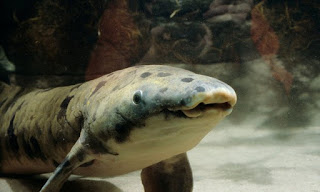 Granddad, the lungfish, was the longest living fish in captivity and was housed at the Shedd Aquarium in Chicago. He was recently put down after not eating and suffering from possible organ failure. The lungfish was estimated to be in his mid-90’s. Lungfish can live to be more than 100 years old. They live in the rivers of Queensland, Australia and are one of the few fish that can breathe air. Read More…
Granddad, the lungfish, was the longest living fish in captivity and was housed at the Shedd Aquarium in Chicago. He was recently put down after not eating and suffering from possible organ failure. The lungfish was estimated to be in his mid-90’s. Lungfish can live to be more than 100 years old. They live in the rivers of Queensland, Australia and are one of the few fish that can breathe air. Read More…
Sea Save Foundation is committed to raising awareness of marine conservation. The Week in Review is a team effort produced by the Sea Save staff to provide a weekly summary of the latest in marine research, policy, and news.

